The Sonoita Wine Trail in Arizona's Santa Catalina Mountains offers a unique viticultural experience. With an average elevation of 4,700 feet, this region provides ideal conditions for cultivating diverse grape varieties not commonly found at lower elevations. Cooler temperatures and intense sunlight result in slow-ripening grapes with complex flavors and balanced acidity, enabling winemakers to produce rare, distinctive wines. The trail features a mix of family-run and innovative wineries employing sustainable practices, advanced technologies, and native yeast strains. Visitors can enjoy a scenic journey through stunning natural surroundings, sampling a diverse range of high-altitude-inspired wines from crisp whites to robust reds.
“Discover the enchanting world of high-elevation winemaking in Sonoita, Arizona, where the vibrant wine culture captivates visitors. This unique region presents a distinct challenge and appeal, shaping the character of its wines. Explore the diverse wineries along the Sonoita Wine Trail, each offering a glimpse into the local terroir. Uncover how climate, soil, and elevation create a symphony of flavors. Delve into innovative techniques and the impact of high altitude on grape varieties, promising memorable wine-tasting experiences that set Sonoita apart.”
- The Unique Challenge and Appeal of High Elevation Winemaking in Sonoita, Arizona
- Exploring the Sonoita Wine Trail: A Glimpse into Local Wineries
- Climate and Soil Conditions: Factors That Contribute to Sonoita's Distinctive Wines
- Techniques and Innovations Employed by Winemakers Along the Sonoita Wine Trail
- The Impact of High Elevation on Grape Varieties and Wine Tasting Experiences
The Unique Challenge and Appeal of High Elevation Winemaking in Sonoita, Arizona
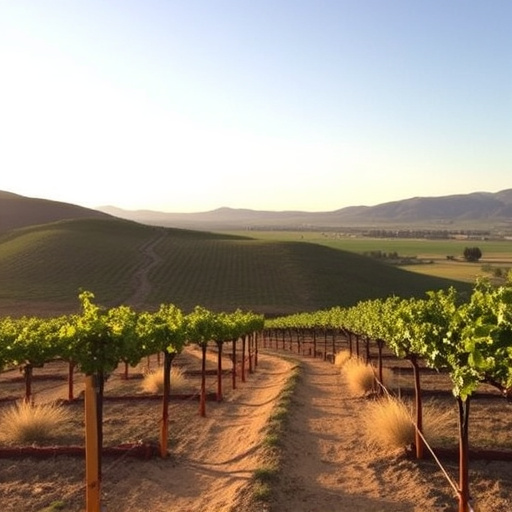
High elevation winemaking in Sonoita, Arizona presents a unique challenge and undeniable appeal for viticulturists and oenophiles alike. Located at an average altitude of 4,700 feet, this small town nestled in the Santa Catalina Mountains offers distinct conditions that significantly impact grape growing and wine production. The crisp, clean air; intense sunlight; and cooler temperatures create a microclimate ideal for cultivating a diverse range of grape varieties not commonly found in lower elevations.
This specialized environment transforms the Sonoita Wine Trail into a destination for adventurous wine enthusiasts. Each vineyard and winery along the trail adapts their practices to maximize the unique characteristics of high-altitude grapes, resulting in distinctive, nuanced wines. The challenge lies in managing the shorter growing season, which demands precise timing for harvesting, while the appeal lies in the ability to produce rare, complex, and truly remarkable wines that reflect the distinct terroir of Sonoita.
Exploring the Sonoita Wine Trail: A Glimpse into Local Wineries
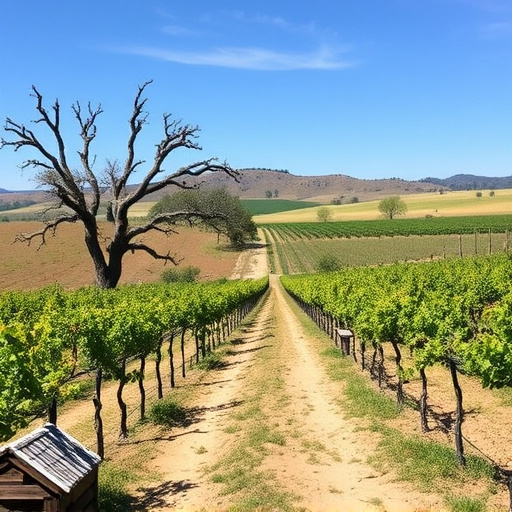
The Sonoita Wine Trail is a must-visit for any wine enthusiast exploring southeastern Arizona. This scenic route winds through the breathtaking landscapes of the Santa Catalina Mountains, connecting a diverse range of local wineries and vineyards. Each stop along the trail offers a unique glimpse into the art of high-elevation winemaking, where grapes thrive in cooler temperatures and vibrant sunlight, producing distinctively flavorful wines.
From intimate family-owned operations to larger, innovative wineries, the Sonoita Wine Trail caters to all tastes and interests. Visitors can enjoy wine tastings, learn about the local viticulture, and take in the stunning views that make this region so special. The trail also facilitates a sense of community among the wineries, fostering collaboration and the exchange of techniques that contribute to the overall quality and diversity of Sonoita’s wine offerings.
Climate and Soil Conditions: Factors That Contribute to Sonoita's Distinctive Wines
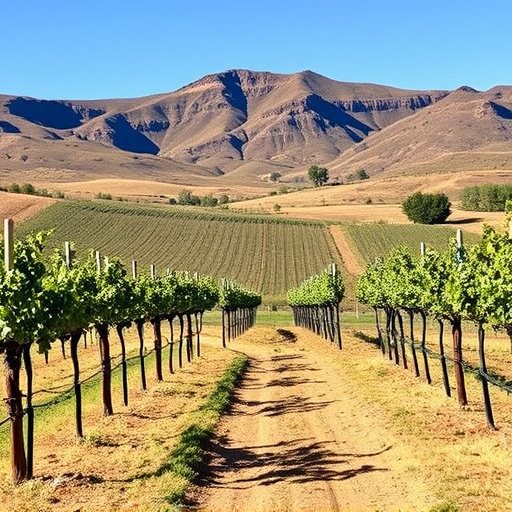
Sonoita, Arizona, nestled in the majestic Santa Catalina Mountains, boasts a unique microclimate and diverse soil types that play a pivotal role in crafting its distinctive wines. The region’s high elevation, averaging around 4,500 feet above sea level, creates cooler temperatures compared to nearby areas, allowing for slow-ripening grapes that develop intense flavors and balanced acidity. This temperate climate, coupled with well-drained soils rich in minerals, contributes to the remarkable character of wines from the Sonoita Wine Trail.
The varied soil conditions across the trail add another layer of complexity. Soils range from volcanic origins to sandy loams, each imparting specific mineral notes and textures onto the grapes. These unique terroir characteristics translate into a diverse range of wines, from crisp white varieties to robust reds, making Sonoita a must-visit destination for wine enthusiasts exploring the Arizona wine scene.
Techniques and Innovations Employed by Winemakers Along the Sonoita Wine Trail
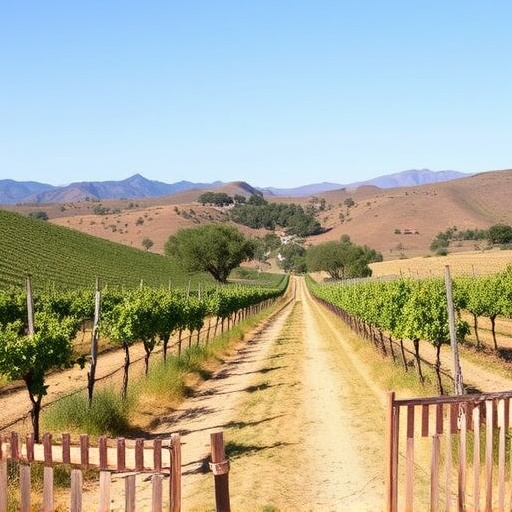
Winemaking at high elevations presents unique challenges, but the winemakers along the Sonoita Wine Trail have embraced these difficulties, employing innovative techniques to create exceptional wines. One key adaptation is the use of native yeast strains that are better suited to the local climate and soil conditions, resulting in distinct and complex flavors. Additionally, many producers opt for organic or sustainable farming practices, reflecting a commitment to preserving the region’s natural beauty.
These winemakers also leverage advanced technologies to enhance their processes. For instance, they use state-of-the-art fermentation equipment that allows precise temperature control, ensuring optimal conditions for each varietal. Moreover, some producers have implemented smart irrigation systems that conserve water while providing the necessary hydration to the vines, showcasing a balance between innovation and sustainability along the Sonoita Wine Trail.
The Impact of High Elevation on Grape Varieties and Wine Tasting Experiences
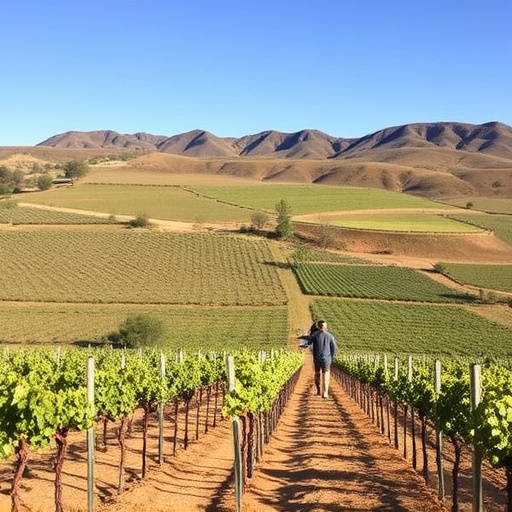
The unique elevation of Sonoita, Arizona—over 4,000 feet above sea level—has a profound impact on the grape varieties grown and the wine produced along the Sonoita Wine Trail. Many grapevines struggle to thrive at such heights, but specific varieties have adapted remarkably well, contributing to the region’s distinctive wines. High elevation contributes to slower ripening times, allowing grapes to develop complex flavors and aromas that might be overshadowed by warmer climates. As a result, winemakers in Sonoita create unique, nuanced wines with excellent acidity and balanced tannins, making them particularly enjoyable for wine connoisseurs.
The tasting experiences along the Sonoita Wine Trail are enhanced by these elevation-influenced characteristics. Visitors can expect to sample wines that showcase remarkable diversity, from crisp white varieties to robust reds, each offering a distinct flavor profile. The varying microclimates within the region allow for a wide range of grape expressions, ensuring that wine lovers can discover and appreciate the unique terroir of Sonoita on their tasting journeys.
High elevation winemaking in Sonoita, Arizona, offers a unique blend of challenge and appeal that contributes to the distinctive character of wines along the Sonoita Wine Trail. By understanding the climate, soil conditions, and innovative techniques employed by local winemakers, visitors can fully appreciate the impact of this elevated terroir on grape varieties and tasting experiences. Exploring the diverse wineries scattered throughout this scenic region provides a rich and rewarding journey for both wine enthusiasts and curious adventurers alike.
